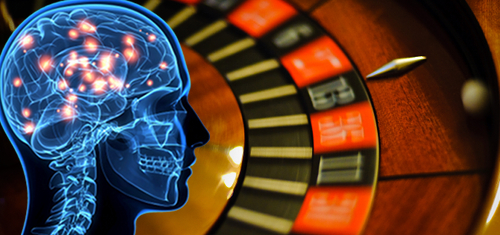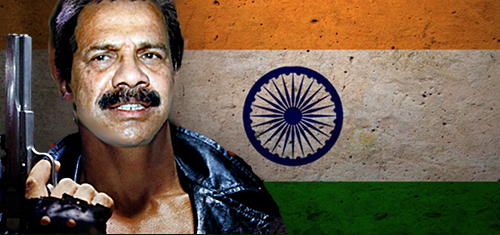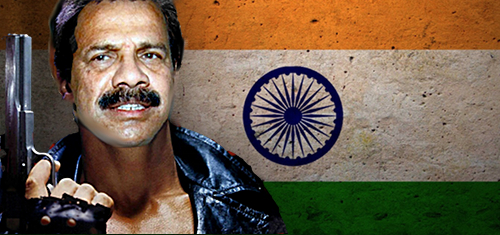To… Seventeen miners are stuck in an elevator 900 feet underground at a central New York salt mine and emergency crews are working on a rescue. Seventeen miners trapped in one of the world’s deepest salt mines were rescued Thursday morning, ending a 10-hour ordeal that began when their elevator broke down 900 feet underground.
Monthly Archives: January 2016
All 17 miners trapped in New York salt mine are rescued
To… Seventeen miners are stuck in an elevator 900 feet underground at a central New York salt mine and emergency crews are working on a rescue. Seventeen miners trapped in one of the world’s deepest salt mines were rescued Thursday morning, ending a 10-hour ordeal that began when their elevator broke down 900 feet underground.
Now Up for Grabs: Biggest Lotto Jackpot in US History
There is no winner celebrating a Powerball win, but there’s always next time.Lottery officials say no tickets had all six numbers matched in the multi-state game, so no one took the $500 million-dollar jackpot. That means the haul for a winner in Saturday’s drawing will be an estimated $675 million dollars.
Now Up for Grabs: Biggest Lotto Jackpot in US History
There is no winner celebrating a Powerball win, but there’s always next time.Lottery officials say no tickets had all six numbers matched in the multi-state game, so no one took the $500 million-dollar jackpot. That means the haul for a winner in Saturday’s drawing will be an estimated $675 million dollars.
Hope's Love Returns at Golden Gate
Minutes after 2014 Horse of the Year California Chrome makes his 5-year-old debut in Santa Anita’s San Pasqual Stakes (gr. II), his full sister Hope’s Love will return from a seven-month layoff in a maiden special weight.

Brain study offers more evidence that problem gamblers are born that way
Researchers have discovered a further link between brain structure and a person’s willingness to take financial risks, which could lead to future treatments for problem gamblers.
The study, published in the journal Neuron under the wordy title of White-Matter Tract Connecting Anterior Insula to Nucleus Accumbens Correlates with Reduced Preference for Positively Skewed Gambles, sought to determine why certain individuals showed “excessive attraction to gambles featuring small chances of winning large amounts.”
Researchers had previously identified two regions of the brain – the anterior insula and nucleus accumbens – which reflect opposite ends of the risk spectrum. The size of the connection between these ‘uh oh’ and ‘oh yay’ regions is different for every individual, which led researchers to wonder if there was a correlation between this connection and an individual’s willingness to take risks.
The study’s authors enlisted volunteers who engaged in a roulette gambling game using real money from inside an MRI chamber. Participants were presented with variable odds for each spin of the wheel, ranging from even odds, to higher odds of winning a small prize, smaller odds of losing big and vice versa. The participants each received $10 with which to wager and were told they could keep any winnings.

Brain study offers more evidence that problem gamblers are born that way
Researchers have discovered a further link between brain structure and a person’s willingness to take financial risks, which could lead to future treatments for problem gamblers.
The study, published in the journal Neuron under the wordy title of White-Matter Tract Connecting Anterior Insula to Nucleus Accumbens Correlates with Reduced Preference for Positively Skewed Gambles, sought to determine why certain individuals showed “excessive attraction to gambles featuring small chances of winning large amounts.”
Researchers had previously identified two regions of the brain – the anterior insula and nucleus accumbens – which reflect opposite ends of the risk spectrum. The size of the connection between these ‘uh oh’ and ‘oh yay’ regions is different for every individual, which led researchers to wonder if there was a correlation between this connection and an individual’s willingness to take risks.
The study’s authors enlisted volunteers who engaged in a roulette gambling game using real money from inside an MRI chamber. Participants were presented with variable odds for each spin of the wheel, ranging from even odds, to higher odds of winning a small prize, smaller odds of losing big and vice versa. The participants each received $10 with which to wager and were told they could keep any winnings.

PokerStars Change Logo; Does it Matter to Customers?
PokerStars have changed their logo to create a more consistent appearance across all of their brand names, but in the current climate, will it make much of difference to their customers?
PokerStars has changed their logo.
Phasing in of the new logo (seen below) began January 1. The old one will be annihilated completely by the end of March. The decision to make the change comes because PokerStars are no longer an online poker company. They are an online gambling company.
The new style brand will allow them to have consistency across all platforms such as PokerStars, BetStars and StarsDraft. It makes sense. Each new business will look great with the same logo design. But in the grand scheme of things, taking into account their current dispute with their customers, it reminds me of a piece of writing on branding I read from the amazing Bernadette Jiwa.

PokerStars Change Logo; Does it Matter to Customers?
PokerStars have changed their logo to create a more consistent appearance across all of their brand names, but in the current climate, will it make much of difference to their customers?
PokerStars has changed their logo.
Phasing in of the new logo (seen below) began January 1. The old one will be annihilated completely by the end of March. The decision to make the change comes because PokerStars are no longer an online poker company. They are an online gambling company.
The new style brand will allow them to have consistency across all platforms such as PokerStars, BetStars and StarsDraft. It makes sense. Each new business will look great with the same logo design. But in the grand scheme of things, taking into account their current dispute with their customers, it reminds me of a piece of writing on branding I read from the amazing Bernadette Jiwa.
Colt is First Foal for Shakin It Up
Spendthrift Farm’s Shakin It Up, winner of the Malibu (gr. I), Strub (gr. II), and San Vicente (gr. II) stakes, sired his first reported foal late Jan. 6, when a colt was born at Brandywine Farm in Paris, Ky.
Lottery official: No winner of Powerball jackpot worth estimated $500 million
Vilas Patel sells a Powerball ticket to Pravin Bhatt, right, at Leprechaun News in Rutherford, N.J., Wednesday, Jan. 6, 2016. The estimated Powerball jackpot for Wednesday night has soared to $500 million.
Lottery official: No winner of Powerball jackpot worth estimated $500 million
Vilas Patel sells a Powerball ticket to Pravin Bhatt, right, at Leprechaun News in Rutherford, N.J., Wednesday, Jan. 6, 2016. The estimated Powerball jackpot for Wednesday night has soared to $500 million.
Larger Keeneland January Sale Begins Monday
Keeneland’s January mixed sale, which runs Jan. 11-15, features a larger catalog and the prospect of bargain shopping at a time when the marketplace for mares and young stock has been highly selective.
Larger Keeneland January Sale Begins Monday
Keeneland’s January mixed sale, which runs Jan. 11-15, features a larger catalog and the prospect of bargain shopping at a time when the marketplace for mares and young stock has been highly selective.
MJC Enacts House Rule on Joint Injections
The Maryland Jockey Club has enacted a house rule for the Laurel Park meet that requires trainers of claimed horses to report joint injections administered in the previous 30 days.
MJC Enacts House Rule on Joint Injections
The Maryland Jockey Club has enacted a house rule for the Laurel Park meet that requires trainers of claimed horses to report joint injections administered in the previous 30 days.

More Than 191K Tickets in Va. Win Prizes in Wednesday's Drawing
News Release from the Virginia Lottery: The Wednesday, January 6, Powerball drawing really brought out the winners in Virginia. More than 191,000 tickets sold in Virginia won prizes, including two tickets that each won $50,000.

More Than 191K Tickets in Va. Win Prizes in Wednesday's Drawing
News Release from the Virginia Lottery: The Wednesday, January 6, Powerball drawing really brought out the winners in Virginia. More than 191,000 tickets sold in Virginia won prizes, including two tickets that each won $50,000.

Law Minister says India should terminate sports betting, not legalize it
India’s top political legal authority says the country should focus on eradicating sports betting rather than legalizing the practice.
A panel led by India’s former Chief Justice R.M. Lodha issued a report this week calling for the legalization of cricket betting but the country’s Minister of Law and Justice says India would be better served using the legal tools it has to stamp out the practice altogether.
In an interview with the Economic Times, D.V. Sadananda Gowda (pictured) said the Lodha committee’s recommendation that India legalize cricket betting “can be considered if at all we are unable to curtail [betting].” But Gowda said India’s existing laws were sufficient to stamp out gambling and so the government “should, as of now, go ahead with the elimination before considering its legalization.”
Gowda’s comments fly in the face of the Lodha committee’s belief that betting could be “effectively dealt with by providing a legal framework” and that legalizing betting would serve both the sport of cricket and India’s economy. Gowda’s comments also suggest a degree of ignorance regarding the widely held consensus that the country’s Public Gaming Act 1867 is in dire need of modernization.

Law Minister says India should terminate sports betting, not legalize it
India’s top political legal authority says the country should focus on eradicating sports betting rather than legalizing the practice.
A panel led by India’s former Chief Justice R.M. Lodha issued a report this week calling for the legalization of cricket betting but the country’s Minister of Law and Justice says India would be better served using the legal tools it has to stamp out the practice altogether.
In an interview with the Economic Times, D.V. Sadananda Gowda (pictured) said the Lodha committee’s recommendation that India legalize cricket betting “can be considered if at all we are unable to curtail [betting].” But Gowda said India’s existing laws were sufficient to stamp out gambling and so the government “should, as of now, go ahead with the elimination before considering its legalization.”
Gowda’s comments fly in the face of the Lodha committee’s belief that betting could be “effectively dealt with by providing a legal framework” and that legalizing betting would serve both the sport of cricket and India’s economy. Gowda’s comments also suggest a degree of ignorance regarding the widely held consensus that the country’s Public Gaming Act 1867 is in dire need of modernization.